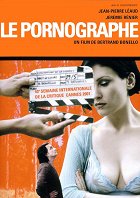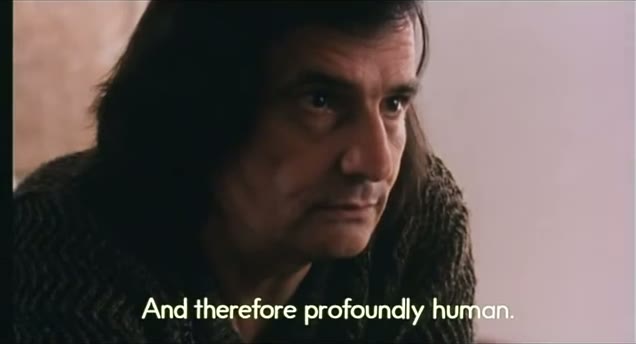Director:
Bertrand BonelloGuión:
Bertrand BonelloCámara:
Josée DeshaiesMúsica:
Bertrand BonelloReparto:
Jean-Pierre Léaud, Jérémie Renier, Dominique Blanc, Catherine Mouchet, Thibault de Montalembert, André Marcon, Laurent Lucas, Richaud Valls (más)Sinopsis(1)
Esta es la historia de un pornógrafo de la vieja escuela, Jacques Laurent (Jean-Pierre Léaud). Después de una exitosa carrera, y habiéndose retirado en los 80 dejándose su gran obra en el tintero -una película sobre una partida de caza en la que la presa es una muchacha-, Laurent vuelve a dirigir cine apremiado por necesidades económicas. Pero pronto descubre que no hay lugar para él en los nuevos modos de hacer de una industria en la que ya no cabe ninguna sutileza, y en la que cuentan más los actos mecánicos que la tensión erótica. Entretanto, su hijo reaparece de improviso, después de años sin dar señales de vida: se fue sin dejar rastro de adolescente, el mismo día que descubrió la profesión de su padre. La vuelta al ruedo, y el reajuste de sus relaciones paterno-filiales hacen que la tranquila vida en hibernación de Laurent se despierte, agitando todos los asuntos sin resolver que hay en su interior. Una crisis existencial, de pareja y emocional que le volverá del revés, pero que quizás aún pueda dar aún algún fruto. (Gijón International Film Festival)
(más)Reseñas (1)
"What kind of actresses do you prefer?" - "Beautiful girls with bourgeois manners, inaccessible to the working class and with the authenticity of a prostitute." This is not a confession of the director's casting preferences, but rather Bonello's description of all European art films produced by artistic "auteurs" since the 1960s. Those who carefully watch the end credits will come across Pasolini's quote: "History is the passion of sons who want to understand their fathers." Bonello's The Pornographer is a sprawling confession by Bonello about his own profession - but it is not pornography, it is the creation of authorial films - which undergoes a similar crisis: revolutionary character, social influence, youth and energy, along with the older generation of classics and the May 1968 movement, have long disappeared from artistic production, leaving only nostalgic, sad, and tiresome contemplation about the meaningfulness of one's own work, which probably no longer interests anyone. The involvement of Léaud is doubly fitting in this sense - the effort to understand his role from the perspective of his film son also means us understanding Léaud himself, who was 24 years old during the May events and played in films by Godard, Pasolini, Truffaut... /// Bonello's biggest problem lies in the form and once again, we are largely confronted with bloodless linear storytelling.
()

